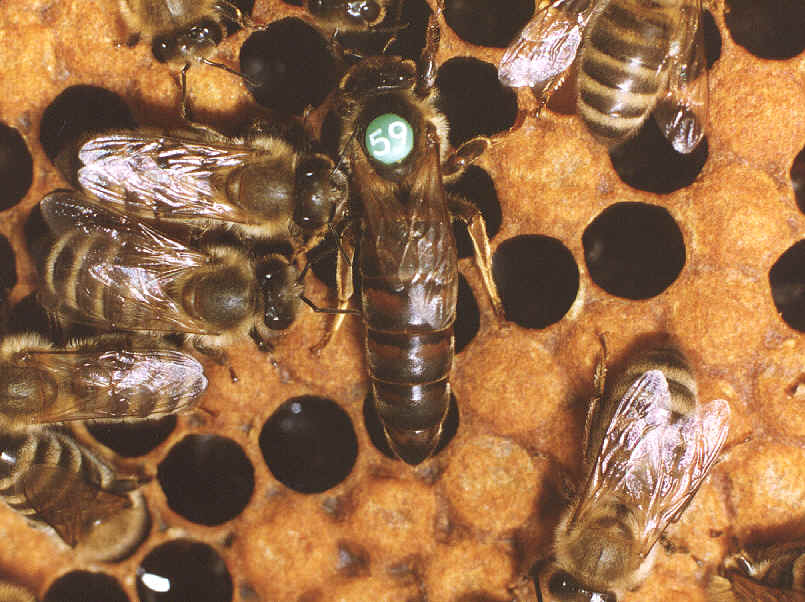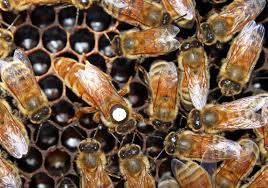|
| |
2014 Queens
Our queens come from Can-Am Apiaries in California. We have
Italian and Carniolan queens from April 12 till September 1st. We try to get all queens
marked to make it easy to find in the hive. We also ship queens to outlying area's.
Carniolan Queen
The Carniolan
bee, A. m. carnica is a dark European race of honey bee that originated in the
region of Yugoslavia, Rumania, Bulgaria, Hungary, and Austria. Some of the earliest importations of the Carniolan
bee into English speaking countries came from Upper Carniola, hence the name Carniolan.
The Carniolan race
is known for its ability to withstand harsh winter temperatures and conservative use of
winter stores. Carniolans winter with a
relatively small, tight clusters, but build rapidly in the spring when pollen and nectar
become available.
Carniolans are
excellent honey producers for areas that have quick early honey flows. Colony population is carefully regulated by pollen
and nectar availability. Such a
characteristic is ideal for a harsh environment, but may not be ideal in certain areas. Carniolans tend to reduce brood production in hot
dry climates to the extent that they may miss the fall honey flow.

The Carniolans queens are my favorite.
Italian Queen
The Italian honey bee is thought to originate
from the continental part of Italy,
south of the Alps, and north
of Sicily. The subspecies may have
survived the last Ice Age in Italy.[1]
It is genetically a different subspecies than that from the Iberian
peninsula and from Sicily. It is the most widely distributed of all honey bees, and has
proven adaptable to most climates
from subtropical to cool temperate, but it
is less satisfactory in humid tropical regions.
Italian bees, having been conditioned to the warmer
climate of the central Mediterranean, are less able to cope
with the "hard" winters and cool, wet springs of more northern latitudes. They do not
form such tight winter clusters. More food has to
be consumed to compensate for the greater heat loss from the loose cluster. The tendency
to raise broods late in autumn also increases food consumption.

2014 Queens
Italian and
Carniolan
Available 4/12/2014
2014 Price
$35.00
includes 2014
queen of your choice in a 3 hole cage, and taxes..
|
